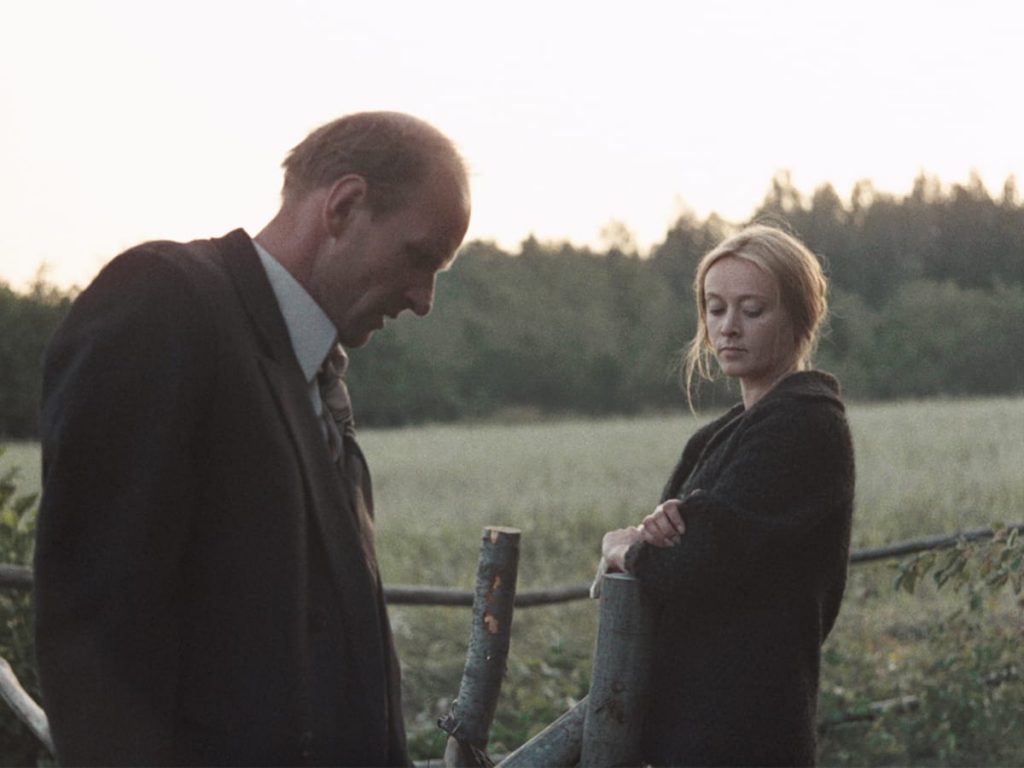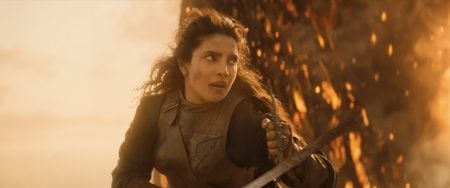Andrei Tarkovsky is one of the few filmmakers who might find themselves on the Mount Rushmore of great artists for the most ardent cinephiles. The Russian auteur only made seven feature films before his death in 1986, but the legacy he has left behind has fueled debate amongst film fans ever since. Squarely in the middle of his career, Tarkovsky delivered not only his most personal film but also one considered to be one of his best. Mirror was the result of years of laboring and feuding with the Russian Film Council. The strict guidelines they had for films to conform to a clear-cut narrative with socialist values proved to be nearly impossible for the artist widely known to be almost painfully inscrutable in his narratives. Even after trying to square himself with the powers that be, the film was deemed too enigmatic and was basically dumped in a handful of theaters where it was intended to be forgotten. The fact that critics found the movie to be a modern masterpiece that spread to international acclaim was something of an embarrassment for the group, but you cannot keep good art in a box. The movie is a challenge, but that is part of its beauty.
Mirror presents itself as something akin to an autobiography of the filmmaker, but it is not so straightforward. The proxy for Tarkovsky is Alexei (Innokenty Smoktunovsky, only heard in voice), a fictional middle-aged poet reflecting back on his life from his childhood (1930s), adolescence (40s) and his present-day adulthood (60s) in a nonlinear fashion. This possibly-dying man often swirls genuine memories with dreams and poetic reflections that further keeps you at arm’s length when it comes to gaining insight into the narrative. This is not a feature concerned with narrative, and it is best to approach it as if you are immersing yourself into a visual song that washes over you. Tarkovsky playfully eschews convention by using the same actors in various roles as if to highlight the importance of generational connection. Ignat Daniltsev plays both Alexei as an adolescent and the man’s adolescent son, Ignat. Margarita Terekhova complicates things even further by playing Alexei’s younger mother, Maria, as well as Alexei’s present-day wife, Natalia. This probably would have been brought up in therapy if he ever went.
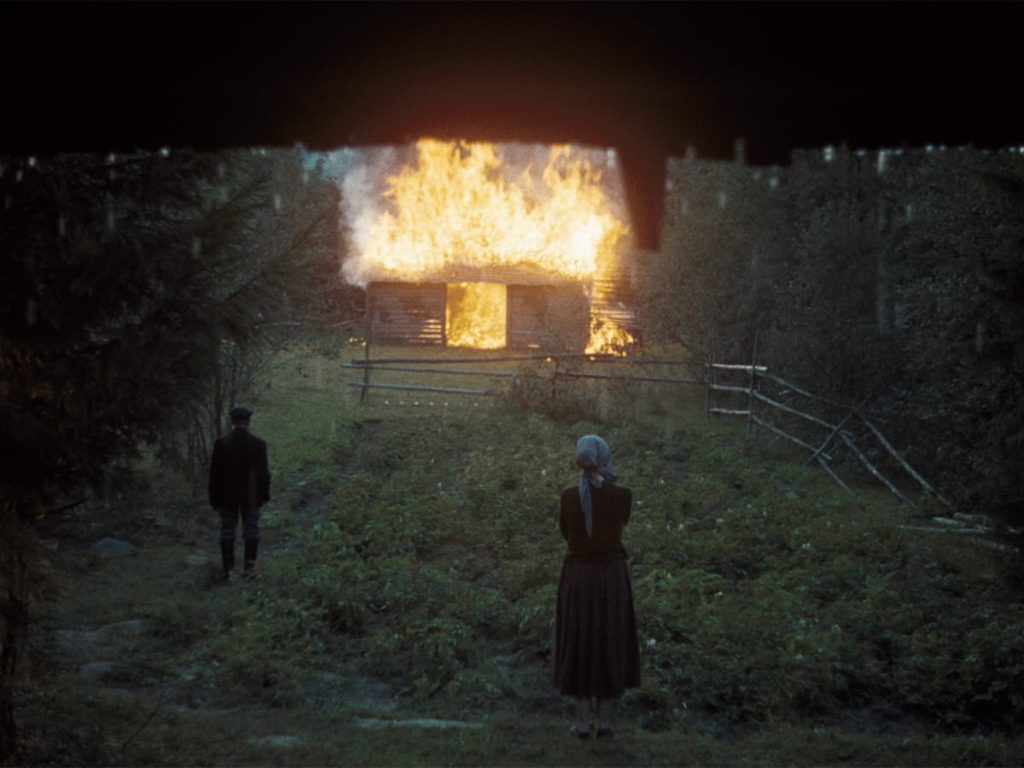
It is fascinating to consider how far Tarkovsky went to recreating his childhood memories of his home down to resodding the field to get the right vegetation, yet he does not go as far as framing the character as a direct version of himself. What Tarkovsky lacks in strict narrative he makes up for in sumptuous visuals from the burning of a barn outside of his childhood home to a woman levitating in one of the few explicit moments of hyper reality. The film is one that is replete with imagery that viewers are meant to unlock as they gain greater insight into the artist and the art that meant something to him. From paintings by Brueghel that pop up in his sci-fi masterpiece Solaris to the poetry read by his father Arseniy Tarkovsky, all of these moments go to further underlining the interconnected nature of the world. The filmmaker also has an interesting way of weaving in stock footage from eras such as the Spanish Civil War that ties into Russia’s place in the conflict. This film has a lot to say about the Russian experience that will probably be lost on western audiences, and that is okay. There is much beauty to be gleaned.
For all of its majesty, there is a fair criticism to level at the film that it is too impregnable for its own good, but the challenging path is often the most rewarding. Anyone who claims to understand everything that is going down in this film is deluding themselves, but to say that it taps into something deep inside of you that you cannot quite understand is a magical experience. Russians are almost genetically predisposed to ponder their place in the world and what they are destined to do, so it only makes sense that this work would come from Tarkovsky. He has a refreshing outlook on the world, and the way in which he depicts its physicality in the film from the wind rolling through the grass to a heat mark disappearing from a table top is quite stirring. While we may all have diverse experiences, we stand connected to the world around us, and by this logic connected to one another. You may not get much out of Mirror, but it has the potential to be a spiritual experience if you let it.
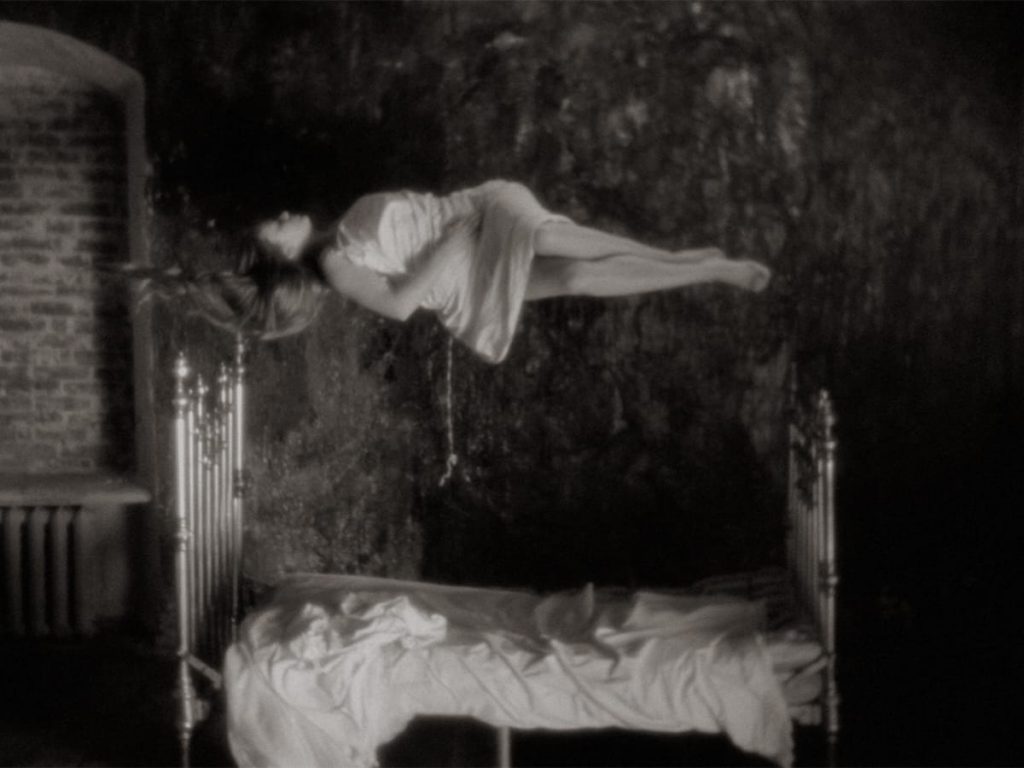
Video Quality
Mirror comes to Blu-Ray with a new digital AVC encoded 1080p transfer in 1.37:1 derived from a 2K scan of the 35mm original camera negative. The presentation is as close to pristine as you could possibly wish for, as the new scan looks quite excellent throughout the entirety of the runtime. There were no discernible instances of print damage, and overall clarity and detail is magnificent. The picture holds up extremely well in long shots, and colors are well saturated in a visually splendid way. Skin tones are natural and consistent with subtle facial features easily noticeable in closeup. Black levels hold up well with virtually nothing in the way of crush. There does not appear to be any amount of digital noise due to compression limitations or other such nuisances. This new presentation is top-tier quality from beginning to end and should please any fan of the material.
Audio Quality
The Blu-Ray disc comes with a remastered LPCM 1.0 mono track in the original Russian with optional English subtitles. The moving music utilized within the feature sounds great throughout the duration of the film, as it settles you into the inner lives of the characters. There are moments where it threatens to overwhelm the dialogue, but the track maintains a good balance so that dialogue comes through clearly. Environmental sounds such as animal noises or weather effects are rendered well alongside everything else. There does not seem to be any majorly noticeable instances of age-related wear and tear. The Criterion Collection has given this film the perfectly preserved, faithful audio presentation it deserves.
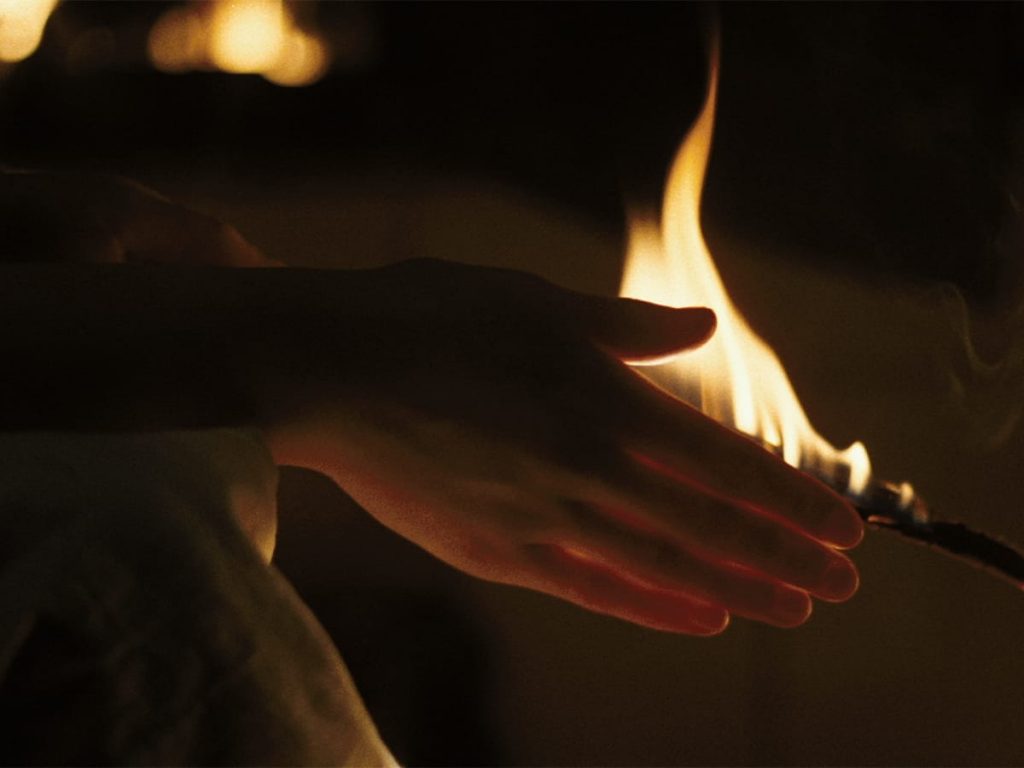
Special Features
The Criterion Blu-Ray of Mirror includes a substantial booklet featuring the essay “All Is Immortal” by film critic Carmen Gray in which she delves into the themes of the film, Tarkovsky’s relationship with the Russian film counsel and much more that is very illuminating. Anyone who finds it difficult to access this film should definitely read this, as Gray provides a great amount of context to the film, analyzes certain passages in-depth and gives some background on Tarkovsky’s career. The works “Confession” and “A White, White Day” are included from Tarkovsky and Alexander Misharin which shows early drafts of the film as submitted to the Russian film counsel along with explanations of what the film was going to be. The on-disc special features are as follows:
- Andrei Tarkovsky – A Cinema Prayer: A 103-minute documentary on Andrei Tarkovsky made in 2019 by the director’s son Andrei A. Tarkovsky. This lovely feature explores the life of the great director by utilizing elements from the past including his own work instead of a traditional talking-head interview. This gives insight into a man who has always been purposefully inscrutable.
- The Dream In The Mirror: A 54-minute documentary from Louise Milne and Seán Martin which features a wide array of interviews with collaborators and family members of director Andrei Tarkovsky along with scholars of his work. This piece offers some compelling insights that help you understand that immense care that was put into bringing the filmmaker’s life to the screen piece by meticulous piece. It is quite incredible that there are still so many people around to help flesh out the lore behind the film.
- Islands – Georgy Rerberg: A 52-minute Russian television documentary from 2007 that looks at the career of cinematographer Georgy Rerberg with a special emphasis on Mirror. Having a deep dive such as this into such a compelling figure is incredibly enriching.
- Eduard Artemyev: A new 22-minute interview with composer Eduard Artemyev who worked with Tarkovsky on Solaris, Mirror and Stalker. Artemyev delves into the way the director approached sound in the film and how he was basically used as a sound designer on the film. There are great stories provided about each of their collaborations which make this an essential listen.
- Alexander Misharin: A nearly 33-minute interview from 2004 with screenwriter Alexander Misharin in which he discusses his relationship with Tarkovsky, his reaction to his work, the atypical writing process of Mirror and more.
- Andrei Tarkovsky: Two vintage interviews are provided here from 1978 featuring the director speaking on French television about his work.
-
- 1 P.M. News (4:19)
-
- Nord-Pas-De-Calais News (3:31)
Final Thoughts
Mirror can be a difficult nut to crack if you expect a clear-cut narrative, but those who are open to experiencing an almost meditative journey through life, death and memory may tap into something quite magical. Andrei Tarkovsky is a master of his craft that must be admired even when his process does not connect with you on a personal level. Just from a technical perspective, this film is a visual masterpiece with wondrous cinematography and thoughtful editing. The Criterion Collection has released a two-disc Blu-Ray set that features the film with a stunning A/V presentation and an excellent assortment of in-depth special features. For Tarkovsky fans or just those willing to immerse themselves in ruminative cinema, this disc is stellar. Recommended
Mirror is currently available to purchase on Blu-Ray and DVD.
Note: Images presented in this review are not reflective of the image quality of the Blu-Ray.
Disclaimer: The Criterion Collection has supplied a copy of this disc free of charge for review purposes. All opinions in this review are the honest reactions of the author.

Dillon is most comfortable sitting around in a theatre all day watching both big budget and independent movies.


